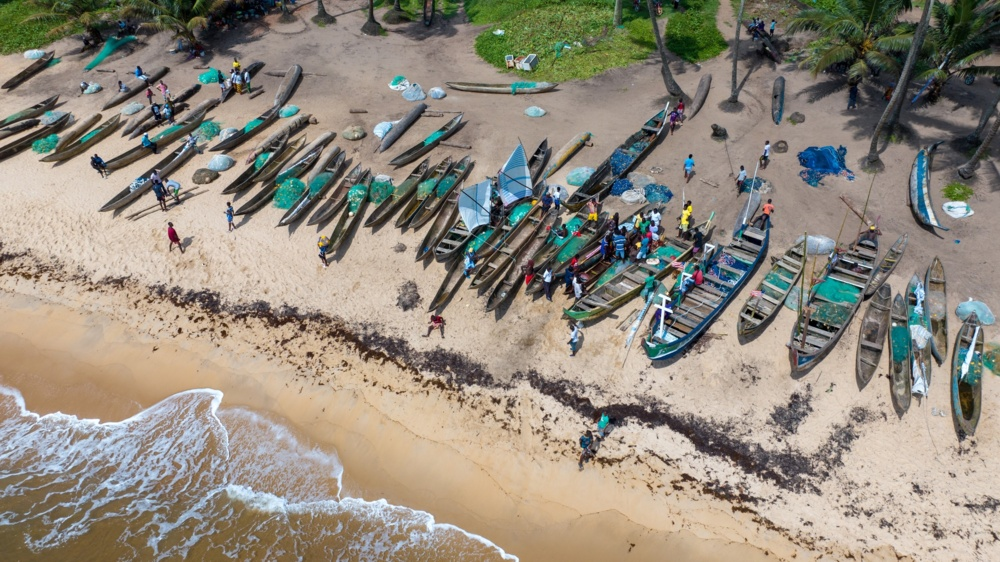Liberia’s small-scale fisheries are the backbone of coastal livelihoods, but they face mounting threats from coastal erosion, mangrove destruction, and insecure land rights. Fishing communities’ rights are at risk without urgent action, according to a new report from the Environmental Justice Foundation (EJF).
Small-scale fisheries are vital for food security, employment, and poverty alleviation in Liberia. Yet EJF warns that without secure access to landing sites and processing areas, fishing communities could be displaced, undermining their livelihoods and threatening national food supplies.
The report, produced under the European Union-funded Communities for Fisheries project, mapped 73 landing sites and public fish smoking facilities across four counties: Grand Cape Mount, Margibi, Grand Bassa, and Grand Kru.
It identifies widespread mangrove loss since 2000, with over 50% lost in Grand Cape Mount and nearly 40% in Margibi. Mangroves act as natural barriers against storm surges and critical breeding grounds for fish, but they are being cleared for building, fish smoking and other uses.
At the same time, sea-level rise and coastal erosion are already destroying landing sites in Robertsport, Buchanan, and Marshall, driving up costs for fishers and threatening vital infrastructure.
Equally pressing are conflicts over land tenure. Many landing and smoking sites lie on privately owned or disputed land, leaving communities vulnerable to eviction. In Marshall, one major site has already been allocated to a private company, despite generations of use by local fishers.
While Liberia’s Land Rights Act provides a pathway to secure tenure, progress on the ground has been slow, leaving fishing communities unprotected.
The study also found stark inequalities between urban and rural landing sites. While towns such as Buchanan and Marshall have modern smoking facilities, most rural fishers still rely on basic methods, facing high post-harvest losses, reduced market access, and increased health risks from sustained smoke inhalation.
To address these urgent challenges, the report recommends:
- Restoring degraded mangroves to protect coasts, support biodiversity, and secure fish populations.
- Building decentralised smoking facilities and cold storage units to cut waste and increase incomes.
- Formally documenting tenure rights for fishing communities under the Land Rights Act to safeguard livelihoods.
- Strengthening Collaborative Management Associations to give communities the tools they need to manage their own fisheries and enforce local rules.
Cephas Asare, West Africa Regional Manager at the Environmental Justice Foundation, said: “Liberia’s small-scale fishers are under severe pressure. Their rights and livelihoods are disappearing alongside the coastline they depend on.
Protecting landing sites, restoring mangroves, and securing tenure rights are essential to support small-scale fisheries and bring security to the communities that depend on these resources.”
EJF is calling on the Liberian government, the National Fisheries & Aquaculture Authority, and international partners to act swiftly, gazette the proposed Territorial Use Rights for Fisheries, and prioritise fishers’ rights in national policy. By doing so, Liberia can build a resilient, sustainable fisheries sector that continues to feed and support its coastal communities for generations to come.
– EJF staff


